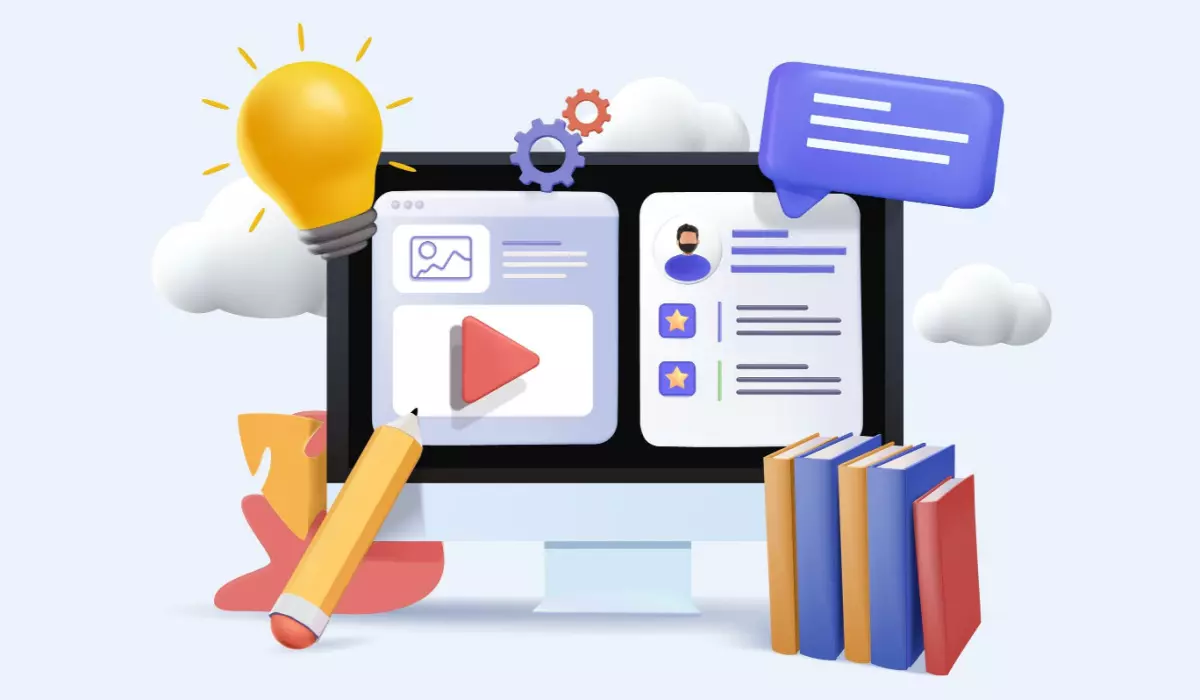
Having a small business idea that you can start from home has become increasingly appealing due to the flexibility, reduced overhead costs, and potential to scale your business without requiring a large upfront investment. With the rise of digital tools and online platforms, there are more opportunities than ever to launch a successful business from the comfort of your own home.
In this post, we’ll explore small business ideas that can be started with minimal resources and how you can turn these ideas into profitable ventures.
1. Freelance Writing

Overview: If you have a knack for writing, freelance writing can be a profitable business idea. Many companies, websites, and blogs need content regularly, and you can offer services like blog posts, copywriting, social media content, or editing.
How to Start:
- Set up a website or portfolio showcasing your writing skills.
- Join freelance platforms like Upwork, Fiverr, or Freelancer.
- Market your services on social media or through personal networks.
Pros: Low startup cost, flexible schedule, and diverse clients. Cons: Competitive field, can take time to build a client base.
2. Online Tutoring

Overview: If you have expertise in a particular subject or skill, you can offer online tutoring sessions. With the increasing demand for virtual learning, many students seek tutors in subjects like math, science, languages, and even art.
How to Start:
- Choose a niche based on your skills and qualifications.
- Register on online tutoring platforms like Chegg, Wyzant, or Tutor.com.
- Offer your services through social media and educational groups.
Pros: High demand, flexible hours, potential for specialization. Cons: Requires strong communication skills and patience.
3. Handmade Crafts or Products

Overview: If you’re a creative individual who enjoys making handmade items like jewelry, candles, or home decor, you can turn your passion into a business. Platforms like Etsy and eBay provide a marketplace for selling handmade products.
How to Start:
- Decide on the products you want to sell and create a small inventory.
- Open an online store on platforms like Etsy, eBay, or your website.
- Market your products through social media, especially Instagram and Pinterest.
Pros: Creative outlet, global market potential, scalable. Cons: Requires time to make products, may need initial investment for materials.
4. Social Media Management
Overview: Businesses are constantly looking for help managing their social media presence. If you understand platforms like Instagram, Facebook, Twitter, and LinkedIn, you can offer social media management services to small businesses and entrepreneurs.
How to Start:
- Build a portfolio by managing social media accounts for friends, local businesses, or nonprofits.
- Create service packages (e.g., content creation, engagement, scheduling posts).
- Use freelance platforms or direct outreach to find clients.
Pros: High demand, low startup cost, flexible hours. Cons: Requires staying up-to-date with trends, can be time-consuming.
5. Virtual Assistant

Overview: A virtual assistant (VA) provides administrative support to businesses or entrepreneurs remotely. Tasks may include managing emails, scheduling appointments, handling customer service, and maintaining websites.
How to Start:
- Identify the services you will offer (e.g., email management, social media assistance, bookkeeping).
- Set up a professional website or portfolio.
- Use platforms like Upwork, Freelancer, or direct outreach to secure clients.
Pros: High demand, wide range of services you can offer, flexible hours. Cons: Requires strong organization skills, multiple clients can mean a busy schedule.
6. Graphic Design
Overview: If you’re skilled in design, starting a graphic design business from home can be a lucrative venture. From logos to marketing materials, businesses always need design work.
How to Start:
- Invest in design software like Adobe Creative Cloud or Canva.
- Build a portfolio showcasing your work.
- Market your services on freelance websites or via your own website.
Pros: High demand, creative work, can command higher fees for specialized skills. Cons: Requires proficiency with design software, may need investment in tools.
7. Blogging or Vlogging
Overview: Blogging or vlogging (video blogging) can be turned into a business by monetizing your content through advertising, sponsorships, or affiliate marketing. You can start a blog or vlog about topics you’re passionate about—such as travel, cooking, fitness, or fashion.
How to Start:
- Choose a niche that you’re passionate about and has an audience.
- Create a blog using platforms like WordPress or a YouTube channel for vlogs.
- Grow your audience through consistent content and promotion on social media.
Pros: Low startup cost, potential for passive income, creative outlet. Cons: Can take time to grow an audience and start earning income.
8. Online Course Creation

Overview: If you’re an expert in a particular field, you can create and sell online courses. Whether it’s photography, graphic design, or cooking, many people are willing to pay to learn new skills online.
How to Start:
- Choose a subject you’re knowledgeable about and that has demand.
- Use platforms like Udemy, Teachable, or Skillshare to host your course.
- Promote your course through social media, blogs, or partnerships with influencers.
Pros: Passive income potential, scalable business, creative freedom. Cons: Requires time and effort to create a high-quality course.
9. Affiliate Marketing
Overview: Affiliate marketing involves promoting other companies’ products and earning a commission on sales made through your referral links. This can be done through a blog, social media, or email marketing.
How to Start:
- Choose a niche that you’re passionate about and where affiliate products are available.
- Sign up for affiliate programs such as Amazon Associates, ShareASale, or Commission Junction.
- Promote products on your blog, YouTube channel, or social media.
Pros: Low startup cost, passive income potential, scalable. Cons: Can take time to build a platform with enough traffic to earn significant commissions.
10. Online Fitness Coaching as a small business idea

Overview: With the rise of remote work and home-based fitness, online fitness coaching has become a popular business idea. If you’re a certified trainer or have a passion for fitness, you can offer personalized training sessions via video calls or sell fitness programs online.
How to Start:
- Obtain any necessary certifications and develop training programs.
- Use platforms like Zoom, Skype, or social media to conduct sessions.
- Build a strong online presence by sharing fitness tips and workouts on social media.
Pros: High demand for health-related services, flexible schedule, scalable. Cons: Requires certification, can be competitive.
You may also like: Latest Google Privacy Control Updates: Navigating the Digital World Safely
Conclusion
Starting a small business from home has never been easier with the availability of online tools and platforms. Whether you’re looking to capitalize on your creative skills or help businesses with their digital needs, there’s a wide range of business ideas that you can explore. The key to success is to identify your strengths, select a business idea that aligns with your skills and passion, and gradually build a client base through consistent effort and marketing.
With a combination of the right idea, planning, and execution, you can turn your home-based business into a profitable venture.
FAQ Section
- Do I need a lot of money to start a business from home? Most home-based businesses can be started with minimal upfront investment. Many ideas like freelance writing or tutoring require little more than a computer and internet connection.
- How can I market my home business effectively? You can use social media, create a website, or join online marketplaces and freelance platforms to promote your services. Word-of-mouth and referrals are also effective strategies.
- What are the best home businesses for beginners? Freelance writing, online tutoring, and virtual assistance are great options for beginners as they require minimal investment and offer flexible schedules.
- Can I scale a home business? Yes, many home-based businesses can be scaled by automating processes, outsourcing tasks, or transitioning into a full-time enterprise as demand grows.
- What legal requirements are there for starting a home business? Depending on your location and the nature of the business, you may need licenses, permits, or a business registration. It’s advisable to check local regulations before starting.




Be the first to comment